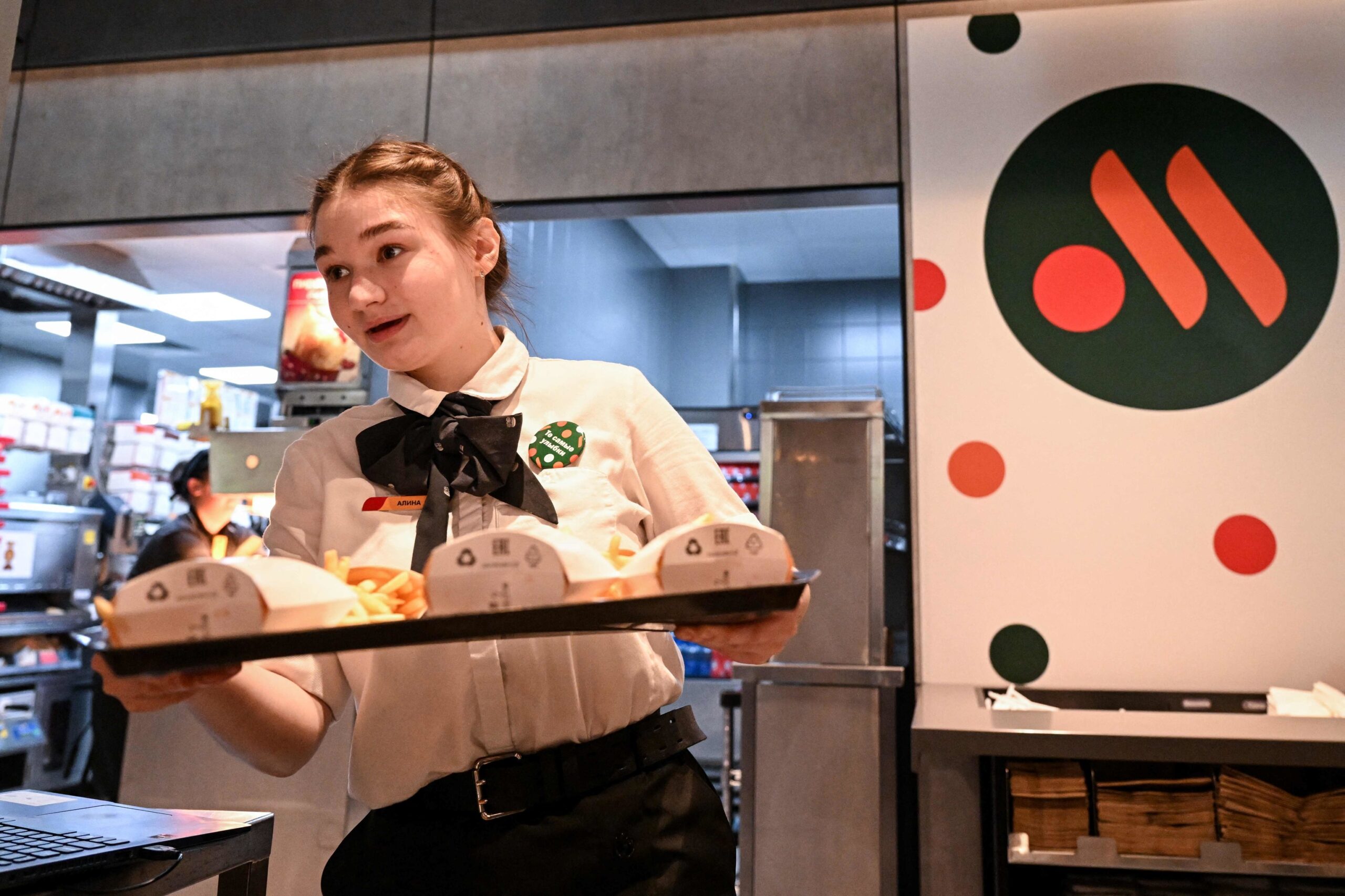32 years ago Oleg was a youngster standing in line at the first McDonald’s to open in the Soviet Union. Russia’s attack on Ukraine has returned the country to a similar isolation in which every development is news and entertainment. That is why this Muscovite, a resident of the center, has returned today, Sunday, to stand in line to discover, in the same restaurant on Pushkin Square, the new brand that has taken over more than 800 orphaned hamburger joints.
The McDonalds chain has left the country in protest of “war”, a word that the Russian government forbids to utter in relation to Ukraine.
The new reality has a new name. The war in Ukraine is called ‘Special Military Operation’ in Russia, and the new brand that replaces McDonald’s is called ‘Vkusno i Tochka’, which translates to ‘Tasty and period’. It’s a humble and witty catchphrase, two crucial qualities in the new economy that awaits Russians.
Inside the burger joint little has changed. The golden arches, due to contract requirements, have disappeared. Also the Big Mac and the McFlurry. But the French fries, grown in Russia, taste even better. Oleg, sitting at one of the tables by the door, delivers his verdict: “I don’t see any difference, everything is just as good.” Before he was a good customer of McDonalds, and now he will be faithful to the new logo: two tilted French fries next to what appears to be a fat point or a hamburger seen from above.
Oleg also seems to be a good consumer of Russian propaganda that these days tries to convince the Russians that the Ukrainians are bombing their own homes: “There is no war in Ukraine, Moscow has not declared it and kyiv has not declared it either”, he settles with a few chips in the mouth. “But we are heading towards a new world order, with two halves: sanctioned countries and sanctioning countries,” he adds with a hint of mischief in his eyes.
Russia and Ukraine accounted for about 9% of McDonald’s global sales last year. Russians are gradually adapting to a life without brands like Starbucks, Zara, Coca Cola, Levis and Apple, global companies that have fled a country where repression against citizens and the media hardens every year.
Russia is under international sanctions that affect almost all spheres of its economy. Putin’s attack on Ukraine is affecting the country’s supply chains and increasing unemployment.
The troubles of the crisis are trying to placate with brushstrokes of patriotism. The hamburger is wrapped in colors reminiscent of the Saint George ribbon, a Russian imperialist ensign. And the presentation of the new brand – organized in the center and scattered with Russian flags – has been made to coincide with Russia Day.
Shortly before the first Muscovites arrived during the sunny morning, the owner of the new brand gave a massive press conference next to the counters. Alexander Govor, a Siberian oil tycoon, aims to reopen around a quarter of the 850 rebranded McDonalds restaurants by the end of the month: “I do not hide that I am ambitious, after reopening everything that was closed we want to go further.” Always with the permission of supplies, which are in danger in the medium term: “We will serve Coca-Cola while it remains in the warehouses.”
Russia is not the USSR: in Moscow alone there are 3,000 fast food restaurants, so Russians do not need the West to teach them how to eat fast, cheap and fun. This time the queues have been only 15 minutes long to discover the new ‘chisburguer’, which adapts in Cyrillic the name devised at the time in the US for McDonalds.
A young man tried to break up the act by bursting in front of the journalists while shouting: “Give us back the Big Mac, it’s urgent!”. The atmosphere is festive and the facilities are immaculate.
Like Oleg, Anna Patrunina was also on that historic day in 1990, when McDonalds ushered in a new era in the final stages of the Soviet Union. She was a nervous young Russian woman working behind the counter, ordered to smile all the time, a strange attitude in society at the time. In 2020 she celebrated 30 years of McDonalds in which she is still her current position: Vice President of Operations of the company. He assures that in 1990 there was more uncertainty than now: “We return with a new logo and a new brand, but we are the same people with the same experience and the same diners, they will see that the prices have not changed nor our bet either”. “32 years ago we were more worried,” she recalls, “because we didn’t know what was going to happen, now we do, but we have a lot of responsibility.”
Conforms to The Trust Project criteria
















